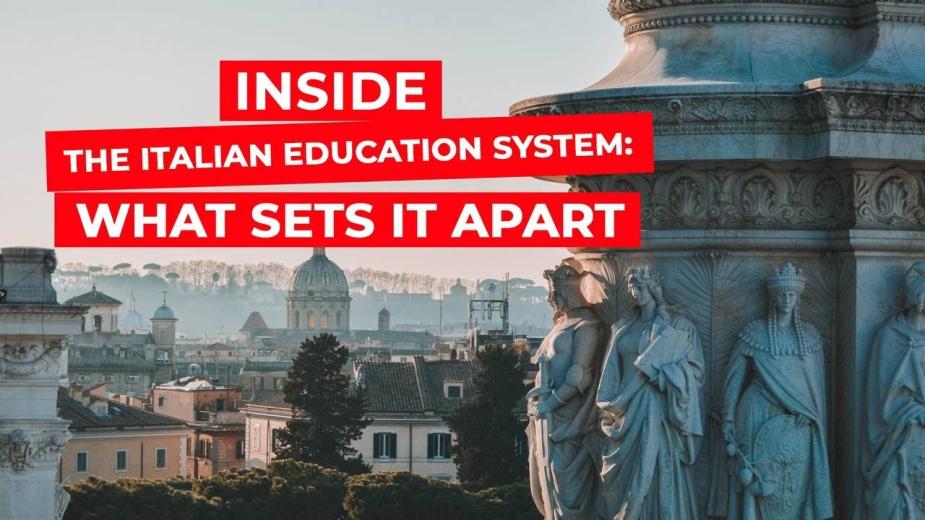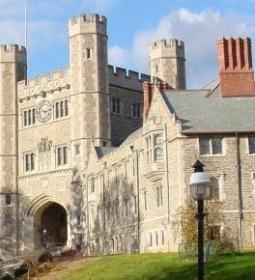Italy is a country where it is pleasant to come both for a trip and for study. What does it take to enter this European university?

Where to apply

According to statistics, there are 61 public and 30 private universities in the country, providing a wide range of faculties. Tuition at public universities is cheaper compared to private ones, but even the latter offer scholarships and grants.
In advance, it is worth familiarizing yourself with the preliminary costs, studying in detail the available scholarships, their conditions and coverage: tuition fees and additional expenses. If you want to work while studying, you need to assess whether there will be enough time, energy and money.
Types of scholarships

If an educational institution has already been chosen, the next step is to look for scholarships, grants, and discounts. There are two main types of scholarships: those based on the financial need of the student or their family, and those awarded for achievement. In the first case, you need to be prepared for providing detailed financial statements, including income certificates, on your own. In the second case, the requirements for additional documentation may vary, and sometimes it is not even necessary to apply for a scholarship.
State discounts under the ISEE system are an indicator, reflecting the economic condition of a student and his family: it is used to calculate social benefits, for example, discounts on tuition, provision of a place in a student dormitory, and meals in a university café. To participate in the program, you must fill out a special declaration, including information about the income and property of the family. Each region of Italy has its own criteria for granting benefits.
The DSU (Diritto allo Studio Universitario) regional scholarship is based on the economic situation of the applicant's family and does not depend on their academic success or age. The main criterion is the financial condition of the family, including income and property. The DSU scholarship can cover both the cost of tuition and related expenses.
The MAECI Academic Scholarship is available to those who are not eligible for DSU – granted for a period of six to nine months, this scholarship of €900 per month is renewable. It is not combined with other scholarships, and persons no older than 28 years old can apply for it.
In addition to government support programs, scholarships offered by universities themselves should be considered: universities often provide financial aid based on both academic achievement and the student's family income.
Admission Process to Universities in Italy

It all starts with the submission of documents and ends with the issuance of a Schengen visa according to the standard.
- Apostille and translation of documents. An apostille confirms the legitimacy of a document issued by an official educational institution. It is necessary to apostille a school certificate for a bachelor's degree or a bachelor's diploma for a master's degree: the process can take up to two months, so it is worth starting in advance.
- Passing language tests. For studying, confirmation of language proficiency is required, as a rule, at a level not lower than B2. In addition to TOEFL and IELTS, Italian universities often accept other certificates. Some universities offer an internal English exam, which can be easier than international tests and is often offered free of charge: CILS, CELI or PLIDA exams passed at level B2 or higher are suitable for studying in Italian.
- Applying through Universitaly. After receiving offers from universities, you need to fill out the final application on the Universitaly portal by following the instructions.
The process of applying to Italian universities includes the submission of language certificates, and you may also need to pass specialized exams, depending on the chosen educational program.
In addition, the preliminary enrollment stage includes the submission of a set of documents to each selected university: a copy of the passport, a diploma of previous education, motivation and recommendation letters, and resumes. For a bachelor's degree, a document confirming twelve years of education is added to this list.
Pay attention that the submission of documents to each university is paid, and responses to applications are sent to the specified email address: the cost and application rules can vary significantly, so it is recommended to carefully choose universities for applications. After submitting the documents, candidates may be invited to an interview, which often takes place in English or Italian, where it is worth saying the choice of the program, demonstrating their own academic and professional plans. In case of a positive response from universities, applicants will be sent an offer of admission.
In order for the Italian Consulate to receive information about the student's enrollment, it is necessary to register and submit an application on the Universitaly portal: the final stage of enrollment takes place in Italy, when the applicant provides the originals of all documents to the international department of the chosen university.

Confirmation of enrollment allows you to start the procedure for obtaining a Dichiarazione di Valore certificate - it confirms the compliance of documents with Italian educational standards.










